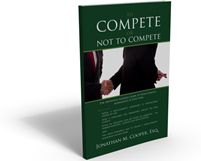
If you've been following the news lately, you may have seen what an active role New York's Attorney General (among others) has taken in terms of trying to curtail employers' ability to enforce non-compete agreements.
The rules on non-competes, across the country, and including New York, appear to be changing, or at least evolving, on a near-constant basis.
That's why - regardless of whether you're an employer trying to make sure a disloyal employee doesn't poach your clients, or whether you're an employee trying to move on to a new job or strike out on your own - failing to seek quality, experienced legal guidance in this area is a truly awful idea.
Of course, you could choose not to consult an attorney - and save a little bit of money - before acting with respect to the non-compete. But for the savings of perhaps $1,500 for the consultation, you are putting hundreds of thousands of dollars in potential damages - or more - at stake.
What Questions You Should Be Asking Before Deciding What to Do Regarding a Non-Compete
This guide reviews vital information commonly surrounding non-compete matters, such as:
- What factors will a New York court consider in deciding whether the non-compete is enforceable?
- What damages can a former employer recover if the employee is found to have breached his restrictive covenant?
- What are the permissible - and impermissible - ways that a former employee can solicit business away from his/her former employer under New York law?
- How an employee can permissibly establish a competing business - even while still working for a former employer.
- When a non-compete agreement is breached, what should I do next?
To learn more about non-compete agreements in New York, get a copy of our valuable and Free Guide.

